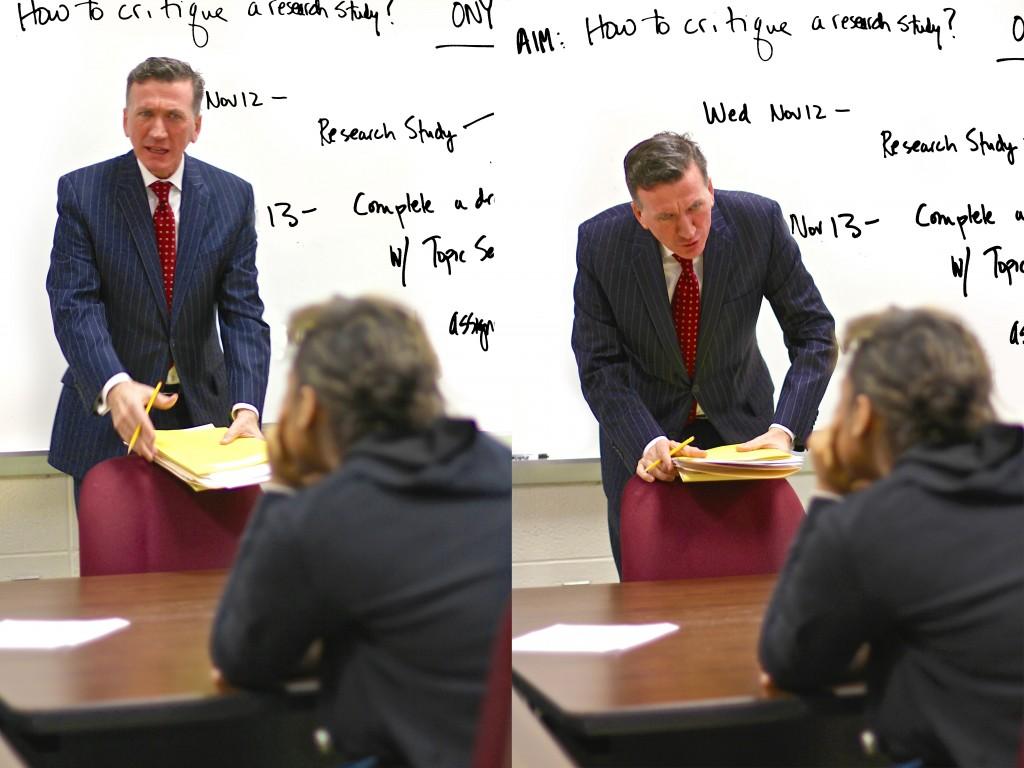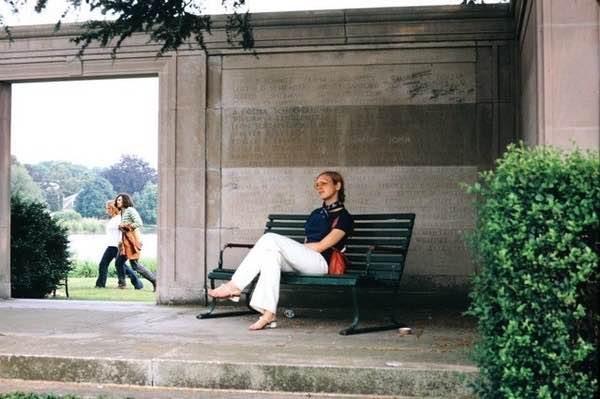
“SIT UP straight!” “Stop slouching!” “Do your homework!” These are all things that you’re used to hearing your parents say.
Everyone has something that grinds his or her gears. Teachers are no different. Collected here are some teachers’ pet peeves that you should be aware of, besides the typical complaints of lateness, sleeping in class, and not doing homework.
Some teachers, such as social studies teacher Franco Scardino, have enough “pet peeves to write a novel.” Many of you may already know his infamous “international symbol of distress,” when students rest their sleep-deprived heads on their arms. He finds this irritating, and he interprets this as the kid being sick.
Another pet peeve of his is when students look in their bags for “homework that doesn’t exist,” as he thinks this is a waste of time.
One of his newest sore points is when students say “what happened?” when they do not understand what he says. To this he responds with, “it rained in Seattle.” Mr. Scardino wants his students to use proper English when asking for him to clarify what he said.
Sophomore Andrew Nektalov firmly agrees with Mr. Scardino. He believes that “since grammar is not regularly taught in English classes, it is important for all teachers to emphasize proper use of the English language.”
On the other hand, some teachers are more forgiving. Science teacher Shibing Shen, for example, only has one thing that peeves her. The fact that students are allowed to use electronic devices such as iPads and laptops in class bothers her, as she is oblivious to what they are doing. However, language teacher Marianthe Colakis disagrees, saying that laptops and iPads are “not much different from notebooks.”
Spanish teacher Diana Villaverde also weighed in, saying that she will tolerate iPads and laptops unless she catches the student doing something inappropriate, which would result in a permanent ban for that student.
There were some common themes evident in some teachers’ pet peeves.
Junior Brenda Yue notices that many of her teachers, both here and from her previous schools, have a huge issue with students packing up and being ready to leave before they formally dismiss them. Many teachers find this disrespectful and rude.
Both Dr. Colakis and art teacher Margherita Wischerth find it aggravating when kids ask why they are learning the subject. Ms. Wischerth further elaborates, by saying that “[being] educated means you want to seek knowledge,” whether it is in the form of art or trigonometry. She believes that all subjects in school are connected, and yield the same importance.
Assistant Principal of Humanities Rafal Olechowski has his own set of pet peeves. Students aggravate Mr. Olechowski when they abuse deadlines. Mr. Olechowski is a lenient teacher, but when a “certain handful of students” take advantage of his policies, it aggravates him.
He also does not like it when students don’t correct him when he pronounces their names wrong. He recalls an experience of a girl who did not correct him when he pronounced her name incorrectly. This resulted in a “very awkward” situation during parent teacher conferences, when her parents were offended when he did not pronounce their daughter’s name properly.
English teacher Christine Duffy has the same problem with kids not correcting her when she mispronounces their names. “Oh my God, I hate [that] so much,” she exclaims.
Ms. Duffy also has a problem when “kids participate, but talk so low that you can’t hear them.”
Science and Math Assistant Principal Susan Brustein, surprisingly, had no pet peeves at all. With a smile on her face, she merely said, “This school makes me happy.”




























